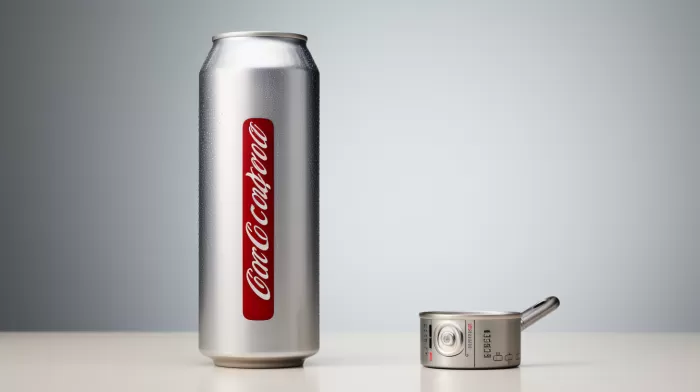Did you know that providing sick children with diet soda when they have a fever, diarrhea, or any other type of illness can actually make it worse? Yes, you read that right. Diet sodas are not only unsuitable for sick children, but they can be downright dangerous.
Say No To The Fizz
In a particular case reported in the European Journal of Pediatrics, a young boy fell seriously ill after consuming Diet Coke for several days. He developed a high fever, vomiting, rapid heartbeat, and breathing problems. Turns out, his consumption of Diet Coke led to a condition called metabolic acidosis.
Metabolic acidosis is a severe pH imbalance in the body that can be life-threatening. Doctors who treated the boy strongly suggest staying away from artificial sweeteners while nursing a sick child and instead provide them with fluids containing real sugar. This helps to prevent the body from becoming overly acidic.
What Is Metabolic Acidosis?
Metabolic acidosis occurs when there is too much acid in the body. It can happen for various reasons, including consuming too many acidic foods, kidney problems, or certain medications. In the case of the boy who drank Diet Coke, the cause of metabolic acidosis was the artificial sweeteners found in the beverage.
Artificial sweeteners can interfere with the body’s natural ability to balance its pH levels, making things worse for a child who is already fighting an illness or infection. When pH levels are off, the body’s organs and systems do not function properly, further compromising the immune system and making it harder to recover from illness.
In severe cases, metabolic acidosis can lead to shock, coma, and even death. So it’s essential to keep a close eye on what your children consume, especially when they are not feeling well.
Alternative Fluids For Sick Kids
When your child is feeling unwell, getting them to drink fluids is crucial to keeping them hydrated and helping them feel better. But with diet soda now ruled out, what other options are there? Here are a few alternatives:
1. Water
Of course, we can’t talk about hydration without mentioning water. It’s the simplest, most natural way to maintain hydration levels in your child’s body, and it’s free from any harmful additives or sweeteners.
2. Oral Rehydration Solution (ORS)
According to the World Health Organization, ORS can help replace lost fluids and electrolytes in children with diarrhea or vomiting, reducing the risk of dehydration. ORS is widely available in pharmacies and comes in various flavors.
3. Sports Drinks
Many sports drinks (not energy drinks!) are formulated with electrolytes and a small amount of sugar, making them a decent option for sick children. These drinks help to replace electrolytes lost due to illness, but keep in mind that they often contain added sugar that may be unhealthy in large quantities.
4. Tea
Warm herbal tea can be a soothing option for sick children, especially if they are experiencing sore throats or congestion. Some teas, like chamomile or ginger, have additional health benefits that can help alleviate symptoms too. Just make sure to choose caffeine-free, age-appropriate teas, and sweeten it with honey or real sugar if desired.
5. Fruit Juice
While fruit juice can contain a lot of sugar and should be consumed in moderation, it can provide sick children with some vitamins and minerals. Stick to 100% whole fruit juices and dilute them with water to reduce their sugar content.
A Word on Artificial Sweeteners
Even without considering the potential risks associated with using artificial sweeteners while nursing sick children, there has been an ongoing debate about their general health impact. Some studies suggest that they may contribute to obesity and other diseases, while others claim that they are a safer, low-calorie alternative to sugar.
To be on the safe side, try to limit the consumption of artificial sweeteners in your household, especially for your kids. Encourage them to develop a taste for natural sweetness found in fruits and naturally sweetened beverages to reduce health risks.
Final Thoughts
So the next time your child falls ill, keep them hydrated, but make sure to avoid diet sodas altogether. Opt for healthier alternatives like water, oral rehydration solutions, or sports drinks, and limit their exposure to artificial sweeteners. Remember, the healthiest choice is often the simplest; keep it natural whenever possible!



